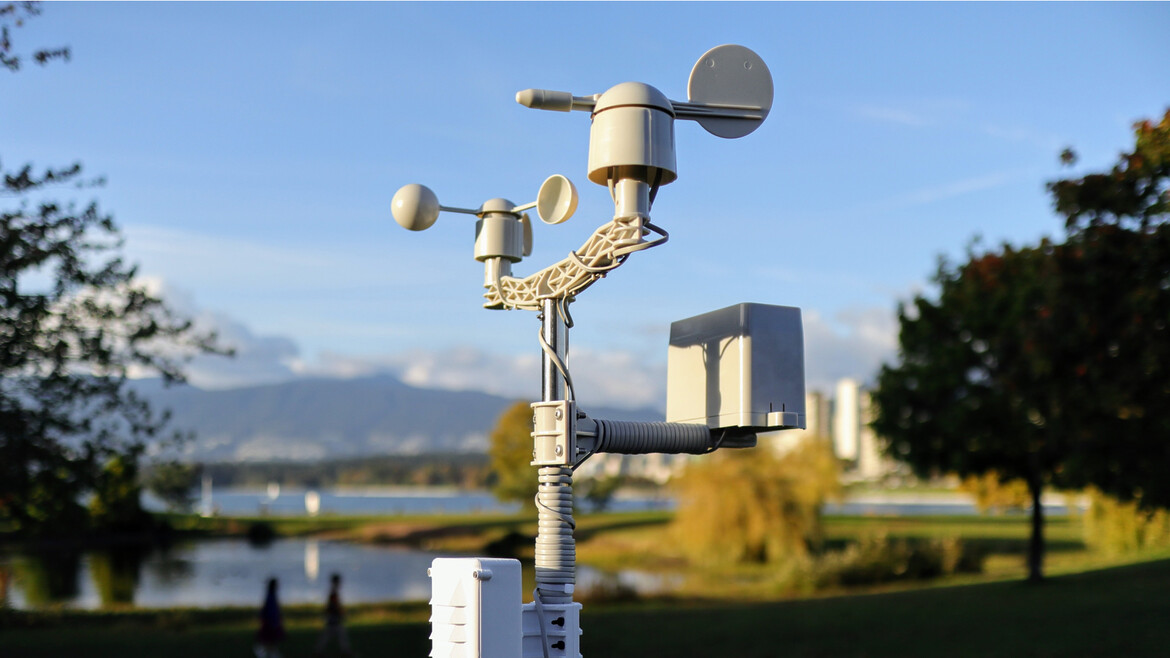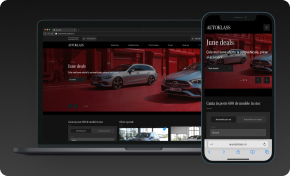The Industrial Internet of Things (IIoT) is reshaping industries by integrating smart devices and data analytics, enabling real-time monitoring and optimization. This serves as a catalyst for transforming manual processes into efficient, automated systems, driving the evolution towards a more creative and connected industrial landscape.
With the rising prominence of Industrial IoT, the expertise of software consultants is increasingly crucial. Navigating the complexities of IoT implementation requires a nuanced approach, and software consultants play a pivotal role in making this happen. They design tailored solutions, ensure seamless interoperability, and facilitate a successful transition into the era of IIoT, keeping companies ahead of the trend.
IT Consultancy Designed Around Your Business Objectives
Expert Guidance to Optimize Your Technology Strategy
Discover IT ConsultingThe Contemporary Importance of Industrial IoT
Industrial IoT plays a critical role in the digitalization of industries, providing a foundation for unprecedented connectivity and data-driven decision-making. By connecting devices, machines, and systems, IoT enables seamless data flow across various facets of operations. This connectivity forms the backbone of a digital ecosystem, empowering industries to move beyond traditional practices and embrace innovative, tech-driven solutions.
Embracing data-driven and IoT-centric approaches in industries brings forth a multitude of benefits. Firstly, it allows for real-time monitoring and analysis of operations, enabling swift decision-making based on accurate insights. This proactive approach to data utilization enhances operational efficiency and responsiveness. Secondly, the predictive capabilities of IoT would allow industries to foresee potential issues, facilitating preventive measures and minimizing downtime. Additionally, the integration of IoT supports optimized resource usage, reducing costs and environmental impact. Ultimately, adopting data-driven and IoT-centric approaches positions industries at the forefront of innovation, driving competitiveness and sustainability in an increasingly digital world.
Begin Your Digital Transformation Journey
Customized Strategies to Lead Your Business into the Digital Age
Explore Digital Transformation9 Transformative Industrial IoT Examples
This article delves into the transformative impact of Industrial IoT, shedding light on its contemporary importance and showcasing nine Industrial IoT examples where IoT implementation has revolutionized industrial processes.
1. Smart Agriculture
The first Industrial IoT example is smart agriculture, representing a paradigm shift in traditional farming. In this innovative approach, IoT implementation, such as using devices like sensors and actuators, is deployed across agricultural fields. They collect real-time data on various parameters like soil moisture, temperature, and crop health. This data is transmitted to a centralized system, where advanced analytics and machine learning algorithms process it to provide actionable insights.
According to a market survey, the smart agriculture market is projected to reach 25.4 billion USD by 2028 from an estimated 16.2 billion USD in 2023. Due to the increasing population and the need to feed them, agriculture must keep up the pace. In response to this, some companies are already at the peak of the trend:
- John Deere Company, a global leader in agricultural machinery, helps farmers succeed in this changing game. It provides top-notch tools and machines that enable farmers to perform precise planting, harvesting, and field mapping.
- The Climate Corporation developed Climate FieldView, an IoT-driven platform for farm management. It deploys IoT sensors across fields to collect weather conditions, soil health, and crop performance data. All gathered data is then analyzed through machine learning algorithms.
- Pipelife Company, which specializes in precision irrigation, implemented a Smart Irrigation System. Utilizing IoT implementation-enabled soil moisture sensors and cloud-based analytics to optimize irrigation schedules helps to reduce water usage.
Main benefits: optimize irrigation, fertilization, and pest control with pinpoint accuracy
Custom Software Development for a Competitive Edge
Build Unique Software Solutions with Our Expertise
Explore Custom Software2. Advanced Energy Management and Grids
With an estimated market size of 40.7 billion USD in 2023, the global energy management systems market is expected to grow to 75.9 billion USD by 2028. So, shifting to this field, we find another Industrial IoT example that emerges as a game-changer by harnessing real-time data analytics for energy consumption. By deploying IoT sensors and smart meters, industries gain unprecedented insights into their energy usage patterns. This real-time data enables businesses to make informed decisions by identifying inefficiencies and pinpointing areas for improvement.
Moreover, Industrial IoT implementation introduces innovative strategies for optimizing power usage and reducing wastage. By leveraging predictive analytics and machine learning algorithms, industries can proactively manage energy loads, implement demand response mechanisms, and streamline overall energy distribution. This enhances operational efficiency and contributes significantly to sustainable energy practices.
Main benefits: identify energy usage patterns, optimize power usage, reduce wastage.
3. Predictive Maintenance in Manufacturing
The manufacturing market includes various physical goods, from food and beverage to electronics and chemicals manufacturing. It grows with every passing year, with an expected compound annual growth rate of 3.57%. Assuring a high quality for these products is a challenging task. In this trillion market worth, a single mistake or a machine defect can cost any manufacturer lots of money. This is why IoT implementation is needed for predictive maintenance.
By deploying sophisticated sensors throughout the manufacturing floor, Industrial IoT enables the early detection of machine wear and tear, marking a paradigm shift in maintenance strategies. These sensors continuously monitor the condition of machinery, collecting real-time data on factors such as vibration, temperature, and performance metrics. This invaluable data is then processed through advanced analytics and machine learning algorithms.
The impact is profound – timely identification of potential issues allows for proactive intervention before equipment failure occurs, minimizing downtime and optimizing production processes. Industrial IoT solutions in Predictive Maintenance enhance machinery reliability and redefine manufacturing floor efficiency, ensuring a seamless and uninterrupted production flow. For some real-world examples, delve into Machine Learning in Predictive Maintenance for Green Tech Solutions.
Main benefits: minimize downtime, optimize production processes.
Advanced R&D Solutions Tailored for Your Business Growth
Innovation Is at the Core of Every Product Through R&D-Focused Software Development
Learn About R&D Services4. Comprehensive Fleet Tracking and Management:
In the field of transportation, another Industrial IoT example unfolds groundbreaking transformations. GPS real-time vehicle tracking, fuel management, and route optimization redefine fleets’ operations. The IoT sensors integrated into vehicles provide constant location updates, facilitating real-time monitoring and management. Route optimization, powered by advanced analytics, ensures the most efficient and cost-effective vehicle paths. Fuel management is enhanced through IoT-enabled systems that track fuel consumption patterns, enabling businesses to optimize fuel usage and reduce costs.
Considering the growth of car fleets and the need for a more efficient management process, all companies using this technology can see its benefits in increased operational visibility, reduced fuel expenses, enhanced delivery timelines, and minimized environmental impact.
Main benefits: reducing fuel expenses, enhanced delivery timelines, reduced stolen vehicles rate.
5. The Era of Smart Warehousing:
We have seen, so far, some great Industrial IoT examples and the benefits of its implementation. Now, let’s have a closer look at warehousing. By embracing IoT technologies, warehouses become dynamic hubs of efficiency. IoT sensors and devices provide real-time visibility into inventory levels, locations, and movement, ensuring accurate and up-to-date information. This minimizes errors and enhances the overall efficiency of inventory management processes.
Beyond this, there is a vast potential for revolutionizing warehousing operations. Industrial IoT enables predictive analytics for demand forecasting, optimizing stock levels, and improving order fulfillment. Automating routine tasks through IoT-driven systems further reduces manual intervention, paving the way for a more agile and responsive warehousing ecosystem. In the upcoming era, Industrial IoT will emerge as the key catalyst in transforming traditional warehouses into intelligent, interconnected hubs of streamlined operations and enhanced efficiency.
Main benefits: optimize stock levels, reduce manual errors, enhance demand forecasting.
6. Innovative Waste Management Solutions:
Every year, we dump 2.12 billion tons of waste on the planet. Looking towards the future, this may predict an unfriendly environment unable to sustain life. This is why we need to monitor and manage the waste produced by each country, city, company, and individual. The solution is another Industrial IoT example: a smooth IoT implementation in the cities or companies’ waste management.
With Smart trash collection utilizing IoT-enhanced bins and routes, waste management becomes a precision operation. IoT sensors embedded in bins monitor waste levels, triggering automatic notifications when bins are nearing capacity. This data is transmitted to a centralized system, optimizing real-time waste collection routes.
The global impact of these solutions is profound, contributing to reduced fuel consumption, minimized carbon emissions, and enhanced sustainability. Leading cities are at the forefront of this transformation, leveraging Industrial IoT to create cleaner, more efficient waste management systems. In this era of innovation, Industrial IoT in waste management stands as a great example, showcasing the potential for technology to revolutionize even the most fundamental aspects of urban living.
Main benefits: reduced fuel consumption, reduced wastewater, sustainability.
7. Healthcare Transformation with Remote Patient Monitoring:
Another sector where Industrial IoT found its place is the healthcare sector. This Industrial IoT implementation spearheads a profound transformation through Remote Patient Monitoring, reshaping the delivery of patient care. Wearable IoT devices equipped with sensors monitor vital signs, activity levels, and other health parameters in real-time. This data is seamlessly transmitted to healthcare systems, enabling continuous remote monitoring of patients.
Beyond individual health tracking, Industrial IoT facilitates resource optimization in healthcare facilities. This allows hospitals to allocate resources more efficiently based on predictive analytics and machine learning, reducing bottlenecks and improving healthcare delivery. Significant breakthroughs observed in healthcare sectors include early detection of health issues, personalized treatment plans, and enhanced patient outcomes. Remote Patient Monitoring, powered by Industrial IoT, exemplifies a future where healthcare is reactive, proactive, personalized, and technologically advanced.
Main benefits: monitoring health parameters in real-time, optimizing resources in healthcare facilities.
8. Intelligent Building Management Systems:
Industrial IoT implementation brings a revolutionary shift through Intelligent Building Management Systems. This involves implementing IoT for energy-efficient lighting, heating, ventilation, air conditioning (HVAC), and security systems. Industrial IoT sensors and devices embedded in buildings enable real-time monitoring and control of these critical systems. Energy-efficient lighting adapts to occupancy, optimizing usage and reducing electricity consumption. HVAC systems adjust based on occupancy and environmental conditions, ensuring optimal comfort while conserving energy.
Security systems leverage IoT for smart surveillance and access control, enhancing overall safety. Urban areas are setting new standards with these innovations, creating sustainable, tech-driven environments that prioritize resource efficiency. Through Intelligent Building Management Systems, Industrial IoT is reshaping urban landscapes, paving the way for smarter, greener, and more connected cities.
Main benefits: real-time monitoring of critical systems, reducing electricity consumption.
Experience the Power of Professional Web Development
Transformative Web Solutions Designed for Your Business Growth
Discover Web Development9. Revolutionizing Water Quality and Distribution Monitoring:
In addressing the critical water management domain, Industrial IoT orchestrates a transformation through Revolutionizing Water Quality and Distribution Monitoring. This involves the strategic leveraging of IoT sensors for real-time water quality assurance. These sensors are deployed throughout water distribution networks, continuously monitoring parameters such as chemical composition, turbidity, pH, temperature, and microbial content. The data collected is transmitted in real-time to a centralized system, ensuring immediate detection of anomalies and potential contamination events.
Considering that only 0.5% of the world’s freshwater is suitable for human use, we must think of solutions for efficient water consumption and waste. By providing real-time insights and enabling swift interventions, Industrial IoT provides insightful details in ensuring the safety and sustainability of water resources globally.
Main benefits: detection of potential contamination events, efficient water distribution.
Envisioning the Future of Industrial IoT
Looking forward, the horizon of opportunities for Industrial IoT implementation seems boundless. Evolving tech scenarios promise even greater integration and efficiency. Governments worldwide are backing this direction by adopting stricter regulations and sustainability standards. As industries navigate this ever-expanding landscape, the significance of expert consultancy cannot be overstated. Companies like HyperSense, with their wealth of experience in crafting tailored solutions, play a pivotal role in guiding businesses through the complexities of Industrial IoT implementation.
In exploring these transformative Industrial IoT examples, we have witnessed the power of connectivity and data in reshaping industries. From smart agriculture to intelligent building management, the impact is profound. As businesses envision their IoT journey, the role of experienced consultancy becomes crucial. HyperSense, with its commitment to innovation and tailored solutions, stands as a reliable partner in guiding businesses towards realizing the full potential of Industrial IoT. Embrace the future confidently, knowing that expert assistance is at your fingertips. Contact us to start your journey towards your digital transformation.










